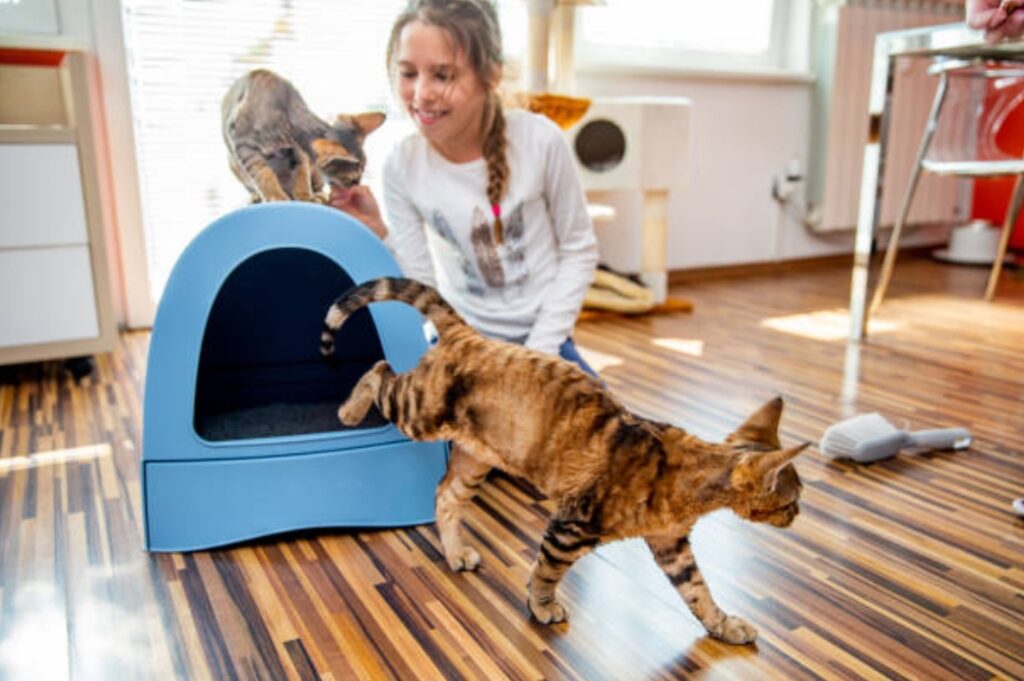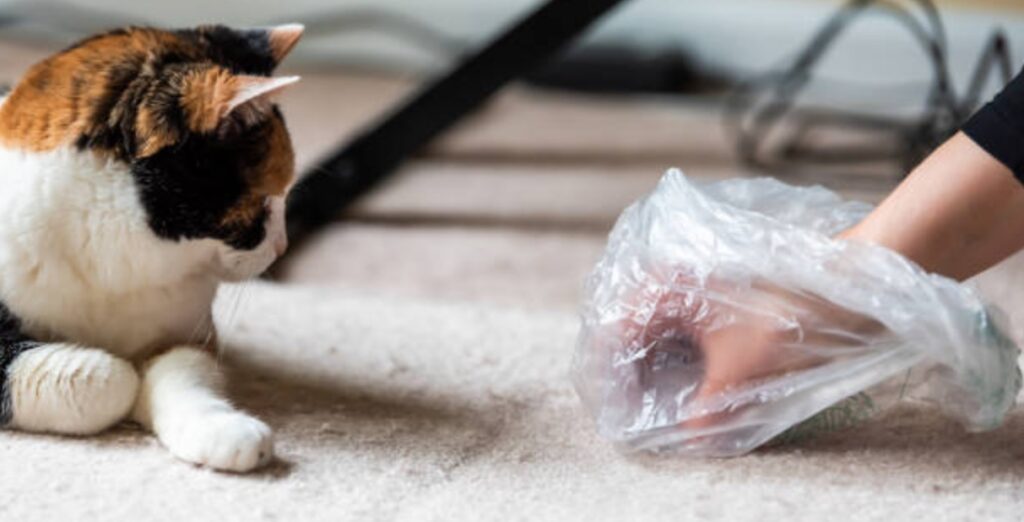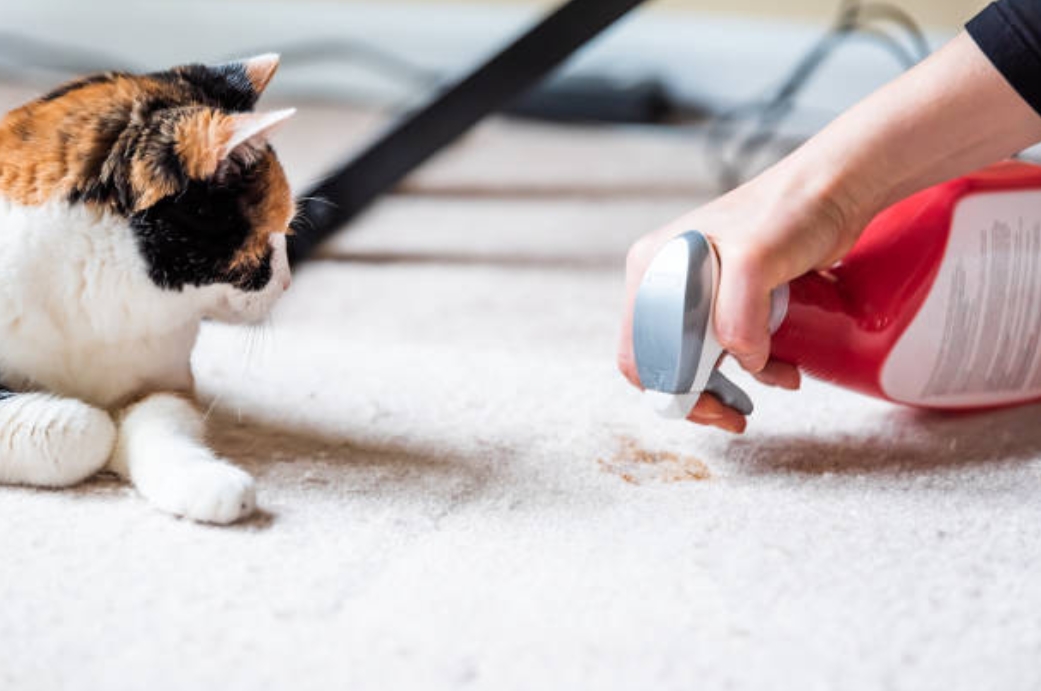If you’re a cat owner, you may have encountered the frustrating issue of your furry friend pooping outside the litter box. It can be a messy and unpleasant problem to deal with, but don’t worry! In this blog post, I’ll share 10 effective strategies that have helped me solve the cat pooping outside the litter box dilemma. By implementing these techniques, you can create a clean and stress-free environment for both you and your beloved feline companion.
Understanding the Reasons:
10 Safe and Healthy Human Foods Cats Can Eat: A Comprehensive Guide
Behavioral Factors:
Cats are creatures of habit, and their behavior plays a significant role in litter box usage. One common reason for this issue is stress or anxiety. For example, when I moved to a new apartment, my cat started pooping outside the litter box due to unfamiliar surroundings. Another behavioral factor could be territorial marking, where cats express their dominance by eliminating outside the box. Additionally, some cats may have a preference for certain surfaces, such as soft carpets or bathroom tiles.
Health-related Factors:
Sometimes, cats may poop outside the litter box due to underlying health issues. Digestive problems or medical conditions like urinary tract infections can cause discomfort, leading them to avoid the litter box. When my cat started exhibiting this behavior, I took her to the veterinarian, who discovered she had a sensitive stomach. After addressing her dietary needs and providing appropriate medical treatment, the problem was gradually resolved.
Identifying the Root Cause
The Top 5 Benefits of Cat Neutering: A Healthier, Happier Feline
To effectively address the issue, it’s crucial to identify the root cause. Here are some steps you can take:
Observing and Analyzing Behavior Patterns:
Pay close attention to your cat’s behavior and observe any patterns or triggers that may be contributing to the problem. Take note of any changes in their routine, environment, or interactions with other pets or family members. By understanding the underlying factors, you can tailor your approach accordingly.
Consulting a Veterinarian:
If you’re unsure about the cause of your cat’s litter box issues, it’s always a good idea to seek professional advice. A veterinarian can perform a thorough examination and rule out any potential medical conditions that may be causing the problem. They can also guide the appropriate treatments or interventions based on your cat’s specific needs.
Conducting Necessary Tests or Examinations:
In some cases, your veterinarian may recommend specific tests or examinations to get a better understanding of your cat’s health. These can include blood tests, urinalysis, or imaging scans. These diagnostic measures can help identify any underlying medical conditions and guide the treatment plan.

Implementing Solutions
Train Your Cat in 5 Simple Steps: A Beginner’s Guide
Now that you have a better understanding of the root cause, it’s time to implement strategies to solve the litter box dilemma. Here are some effective techniques:
Environmental Modifications:
Create a welcoming litter box environment by considering factors such as placement, accessibility, and cleanliness. For example, ensure that the litter box is easily accessible to your cat, especially if they have mobility issues. Place it in a quiet and private area to reduce stress or distractions. Regularly clean the litter box to maintain hygiene and freshness, as cats can be quite particular about cleanliness.
Behavioral Training Techniques:
Use positive reinforcement and rewards to encourage your cat to use the litter box consistently. For instance, whenever your cat successfully uses the litter box, praise and reward them with treats or gentle petting. Consistency and patience are key when implementing these techniques. Gradual desensitization can also be helpful, especially when dealing with cats that have developed aversions to the litter box. Gradually introduce them to the litter box, making it a positive and stress-free experience.
Veterinary Interventions:
In some cases, your veterinarian may recommend medications, dietary adjustments, or specific medical treatments to address any underlying health issues. For instance, if your cat has digestive problems, a change in diet or the use of digestive supplements may be beneficial. Follow your veterinarian’s advice and monitor your cat’s progress closely.
Preventive Measures and Maintenance
Common Cat Diseases and Symptoms
To maintain a healthy litter box routine, consider these preventive measures:
Regular Monitoring and Observation:
Keep a close eye on your cat’s litter box habits. Notice any changes in their behavior or litter box usage. This way, you can quickly identify and address any potential issues before they become more challenging to resolve.
Creating a Stress-free Environment:
Cats are sensitive to their environment, so ensure that your home provides a calm and stress-free atmosphere. Provide hiding spots, scratching posts, and interactive toys to keep them mentally stimulated and engaged. Minimize any disruptions or changes that may cause anxiety or stress.
Consistent Litter Box Maintenance:
Maintain a routine of cleaning the litter box regularly. Remove waste and clumps daily, and completely change the litter at least once a week. This helps ensure that the litter box remains clean and appealing to your cat.
Seeking Professional Help
If your cat’s litter box issues persist despite your efforts, it may be time to seek professional help. Consider the following options:
When DIY Methods Fail:
If you’ve tried various strategies and the problem persists, don’t hesitate to reach out for assistance. Sometimes, an outside perspective or expertise can make a significant difference. It’s essential to prioritize your cat’s well-being and happiness.
Consulting a Certified Animal Behaviorist:
Certified animal behaviorists specialize in understanding and modifying animal behavior. They can assess your cat’s specific situation, provide tailored advice, and develop a behavior modification plan. They will work with you to address the root cause of the litter box issue and guide you through the necessary steps.
Collaborating with a Veterinary Specialist:
In complex cases where there may be underlying medical conditions or chronic behavioral issues, collaborating with a veterinary specialist, such as a veterinary behaviorist, can be beneficial. These professionals have advanced training in both veterinary medicine and animal behavior and can provide comprehensive guidance and treatment options.

Frequently Asked Questions
Why is my cat pooping outside the litter box?
Cats may poop outside the litter box due to various reasons, including behavioral factors like stress or anxiety, territorial marking, or a preference for certain surfaces. It can also be caused by health-related issues such as digestive problems or medical conditions. Identifying the underlying cause is essential to finding a solution.
How can I prevent my cat from pooping outside the litter box?
Preventive measures include maintaining a clean litter box, providing a stress-free environment, and addressing any behavioral or medical issues. Ensuring the litter box is easily accessible, using positive reinforcement for using the litter box, and seeking veterinary help if needed are important steps.
Should I punish my cat for pooping outside the litter box?
No, punishing your cat for pooping outside the litter box can worsen the problem and create more stress. Instead, focus on positive reinforcement, behavioral training techniques, and addressing any underlying issues. Punishment can lead to fear and anxiety, further complicating the litter box problem.
When should I seek professional help for my cat's litter box issues?
If your cat continues to poop outside the litter box despite your efforts, it's advisable to consult a veterinarian or a certified animal behaviorist. They can provide expert guidance, assess your cat's specific situation, and develop a tailored plan to address the issue effectively.
Can a change in litter type cause my cat to poop outside the litter box?
Yes, some cats may develop aversions to certain types of litter. If you recently changed the litter and noticed your cat pooping outside the box, it's worth trying different litter options to see if your cat prefers a specific type. Gradual transitions and offering different litter choices can help determine their preference.Remember, each cat is unique, and finding the right solution may take time and patience. If you’re concerned about your cat’s litter box habits, it’s always best to consult with a professional to ensure the well-being of your feline companion. cat pooping outside litter box, most relevant content around the net vet.cornell.edu, purewow.com
Conclusion of Cat Pooping Outside Litter Box
In conclusion, addressing the cat pooping outside the litter box dilemma requires understanding the underlying reasons, identifying the root cause, implementing effective strategies, and maintaining a consistent routine. By observing your cat’s behavior, consulting a veterinarian if necessary, and making environmental and behavioral adjustments, you can help your feline friend overcome this issue. Remember, every cat is unique, so be patient, persistent, and adaptable in finding the right solution for your beloved companion. With time and effort, you can create a harmonious environment where your cat feels comfortable and consistently uses the litter box.
The Best 5 Cat Breeds For Home
We value your thoughts and experiences! We invite you, our valued readers, to share your insights and personal experiences with cat litter box issues. Have you encountered similar challenges with your own feline companions? What strategies have you found effective in addressing this problem? Your comments and feedback not only help us learn from each other but also contribute to building a supportive community of cat owners. Feel free to share your stories, tips, or any questions you may have. Let’s join together in the comments section below and make a positive difference in the lives of our furry friends!
